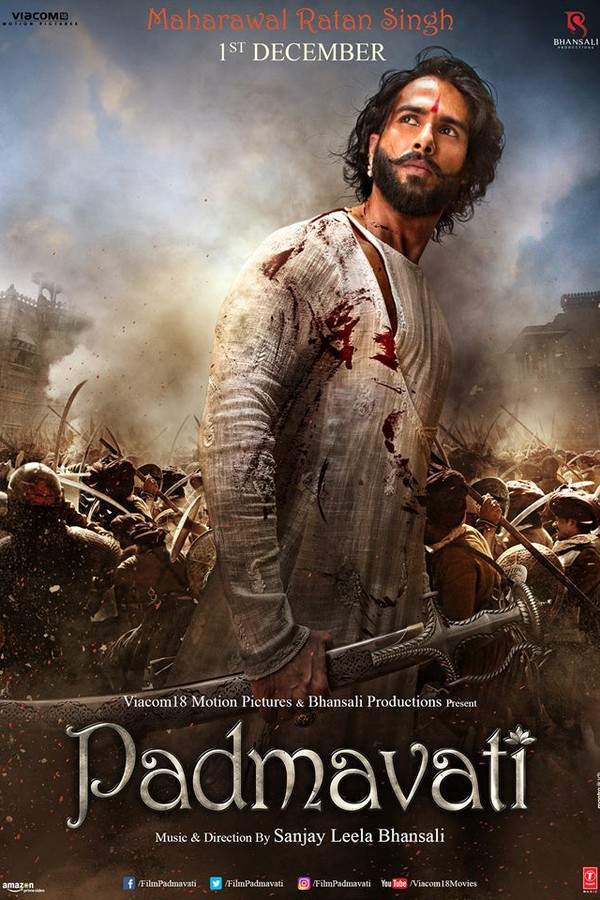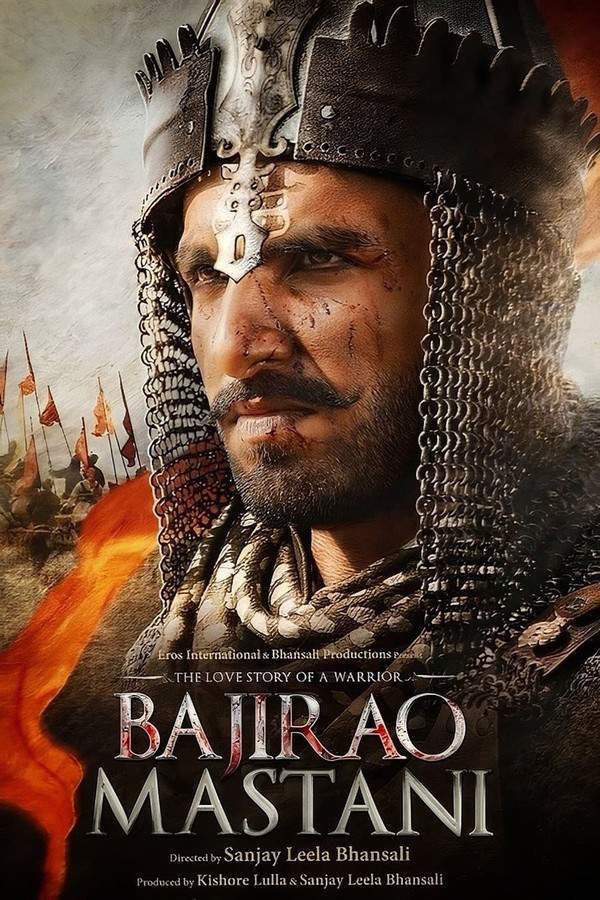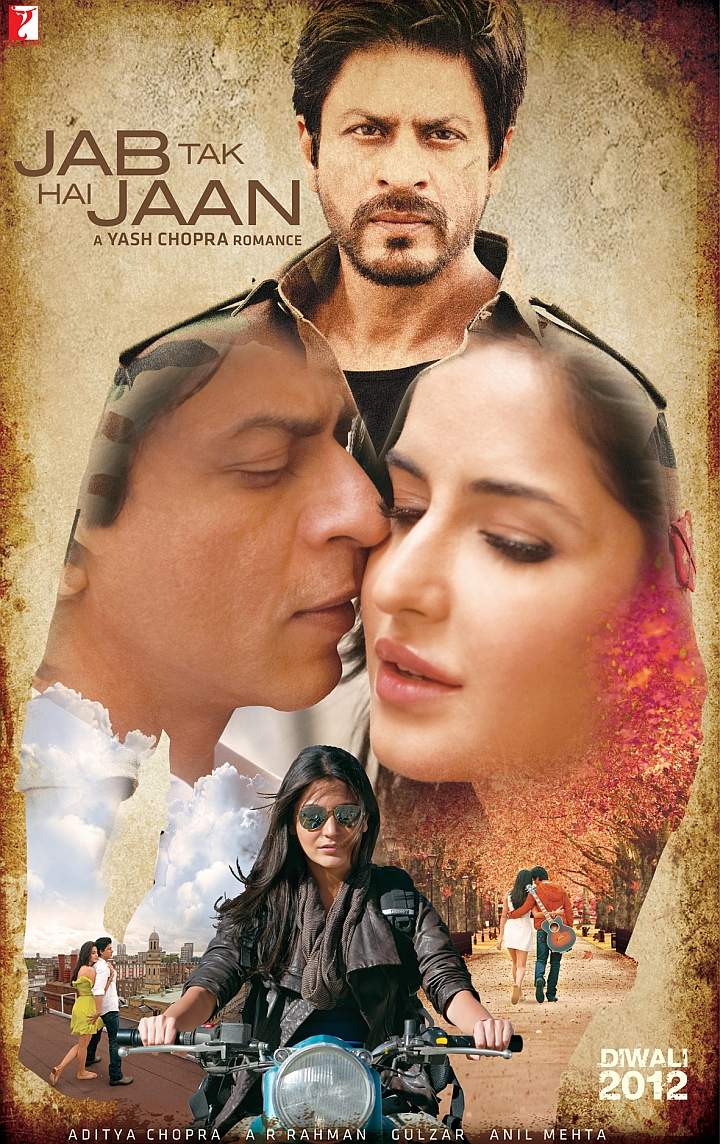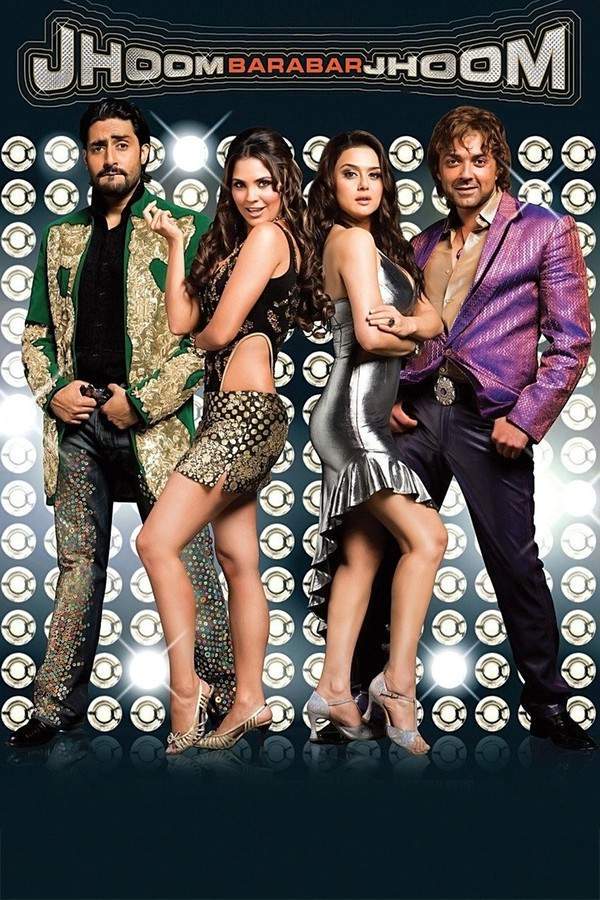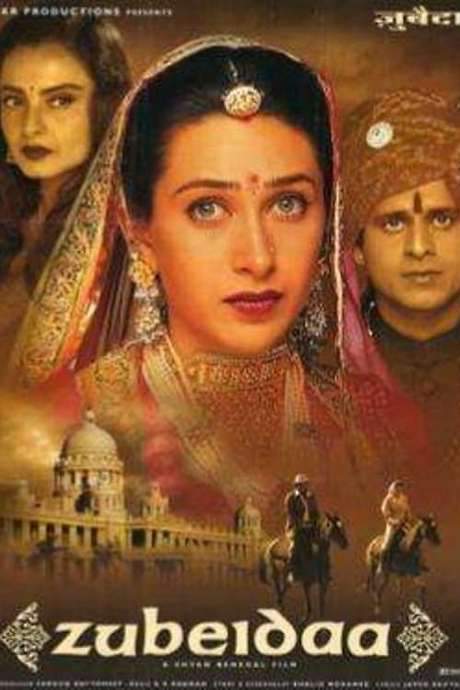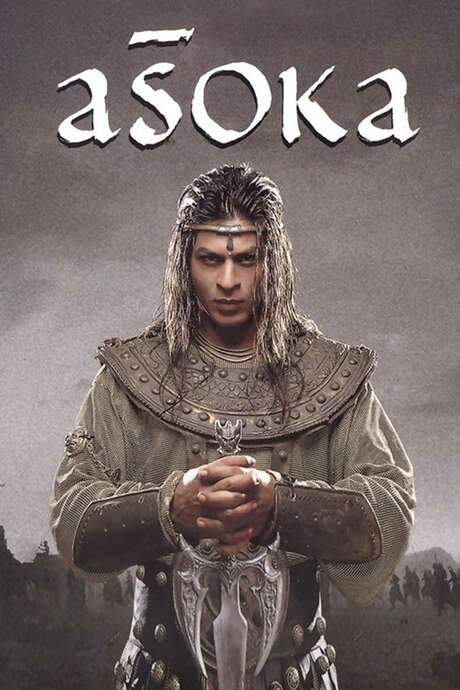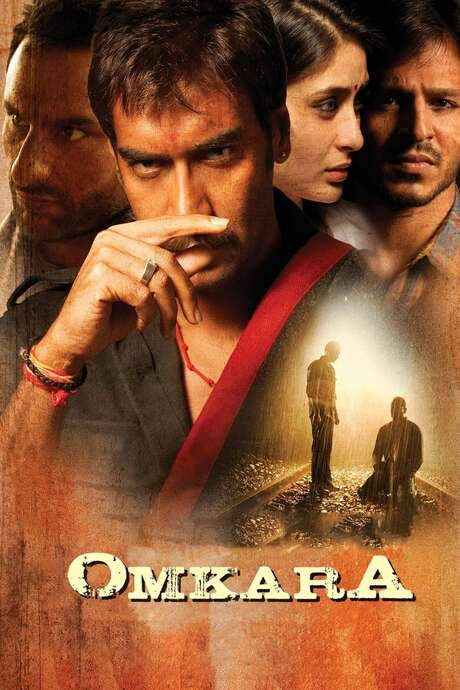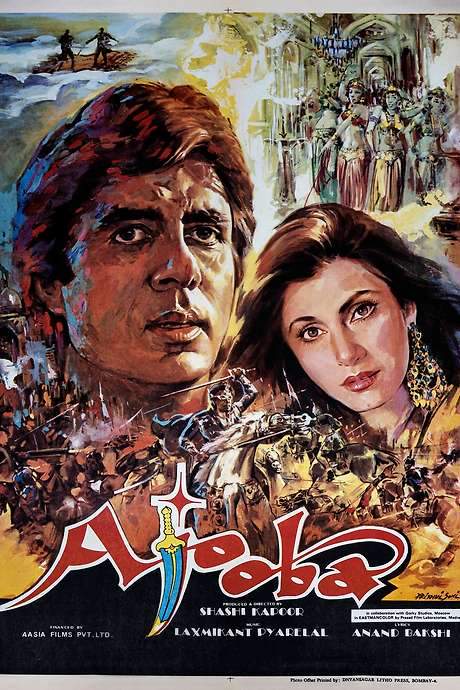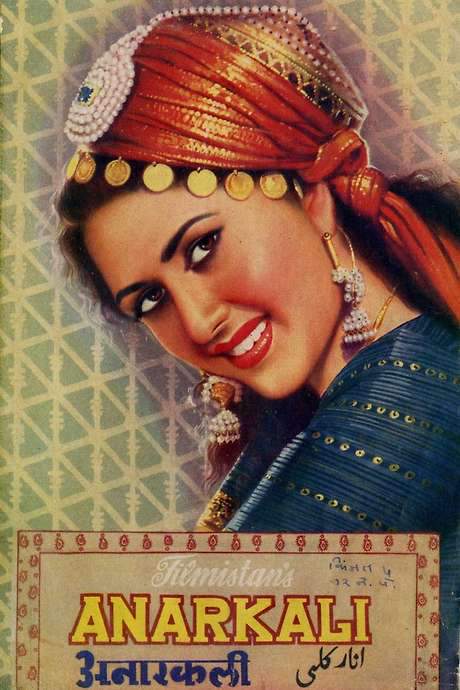Jodhaa Akbar 2008
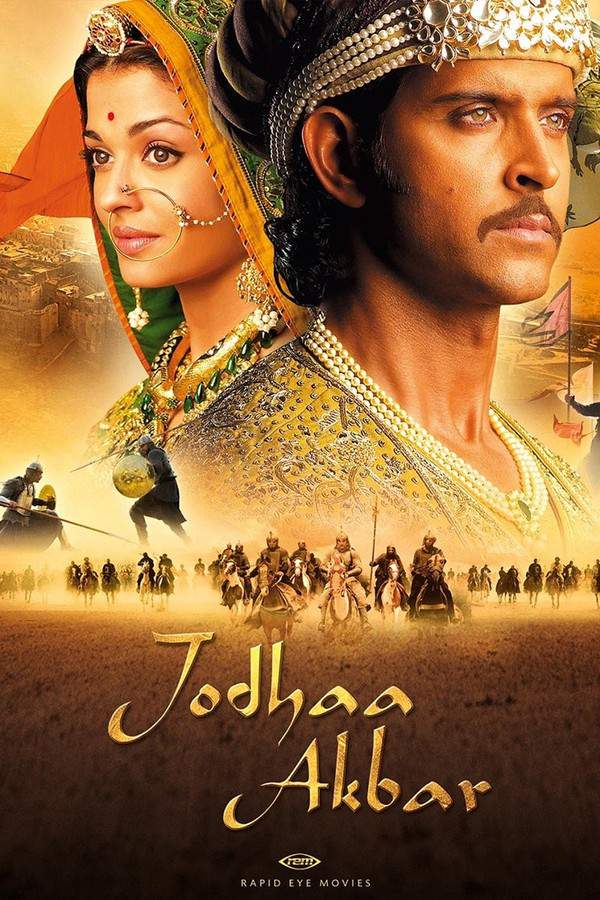
In 16th century India, Emperor Akbar seeks to solidify his rule through a strategic marriage to Princess Jodhaa. What begins as a political alliance between their kingdoms and faiths gradually blossoms into a profound love story. Akbar grapples with the intricacies of his empire, his personal beliefs, and the cultural differences that arise as he and Jodhaa navigate their unexpected connection and forge a unique bond.
Does Jodhaa Akbar have end credit scenes?
No!
Jodhaa Akbar does not have end credit scenes. You can leave when the credits roll.
Meet the Full Cast and Actors of Jodhaa Akbar
Explore the complete cast of Jodhaa Akbar, including both lead and supporting actors. Learn who plays each character, discover their past roles and achievements, and find out what makes this ensemble cast stand out in the world of film and television.
No actors found
External Links and Streaming Options
Discover where to watch Jodhaa Akbar online, including streaming platforms, rental options, and official sources. Compare reviews, ratings, and in-depth movie information across sites like IMDb, TMDb, Wikipedia or Rotten Tomatoes.
Ratings and Reviews for Jodhaa Akbar
See how Jodhaa Akbar is rated across major platforms like IMDb, Metacritic, and TMDb. Compare audience scores and critic reviews to understand where Jodhaa Akbar stands among top-rated movies in its genre.

69
Metascore
7.0
User Score


79%
TOMATOMETER

78%
User Score

7.5 /10
IMDb Rating

73
%
User Score
Take the Ultimate Jodhaa Akbar Movie Quiz
Challenge your knowledge of Jodhaa Akbar with this fun and interactive movie quiz. Test yourself on key plot points, iconic characters, hidden details, and memorable moments to see how well you really know the film.
Jodhaa Akbar Quiz: Test your knowledge on the epic tale of Jodhaa Akbar and the intricate dynamics of love, politics, and power during the Mughal dynasty.
Who was the Mughal emperor that married Jodhaa?
Akbar
Humayun
Babur
Ratan Singh
Show hint
Full Plot Summary and Ending Explained for Jodhaa Akbar
Read the complete plot summary of Jodhaa Akbar, including all major events, twists, and the full ending explained in detail. Explore key characters, themes, hidden meanings, and everything you need to understand the story from beginning to end.
Mughals established their dominion in India, a legacy that began with Babur and continued through Humayun to Akbar, who uniquely was the first Mughal emperor born on Indian soil. The year is 1555, and following the unexpected demise of Humayun, Hemu (Shehzor Ali) claims the throne of Delhi. In this time of turmoil, Bairam Khan (Yuri Suri), a steadfast general of the Mughal empire, stands beside the young Emperor Akbar. With Hemu commanding an army twice that of the Mughals, Bairam Khan devises a strategy to eradicate Hemu in battle, and this ambitious plan ultimately succeeds at the Battle of Panipat. In a gruesome turn of events, Bairam Khan beheads Hemu following Akbar’s refusal to stain his hands with blood.
With this crucial victory, Bairam Khan embarks on consolidating the vast Mughal empire, dispatching emissaries to kings across Hindustan with a mandate: surrender your treasury and pay taxes to the Mughals or face their formidable wrath. While some rulers comply, many outright reject these demands. As a young emperor, Akbar (Hrithik Roshan) leads his armies valiantly yet consistently refuses to execute vanquished kings, even standing against Bairam Khan on this principle. Akbar aspires to govern Hindustan with compassion and justice, a vision that resonates with the defeated kings, compelling them to accept Mughal rule amicably. Eventually, Akbar relieves Bairam Khan of his duties, sending him on a pilgrimage to Mecca.
In a twist of fate, Jodhaa (Aishwarya Rai Bachchan), the daughter of Raja Bharmal (Kulbhushan Kharbanda) of Amer, finds herself betrothed to Rajkumar Ratan Singh (Aman Dhaliwal) of Ajabgarh. Raja Bharmal proclaims his son Bhagwant Das (Digvijay Purohit) as his successor, overlooking Jodhaa’s cousin Sujamal (Sonu Sood), whom Jodhaa wishes to see as the rightful heir instead. Bitter over this injustice, Sujamal seeks refuge with rebel leader Sharifuddin Hussain (Nikitin Dheer), who eyes Delhi itself, despite being Akbar’s brother-in-law and the governor of three provinces.
As tensions rise, Raja Bharmal proposes a peace treaty through the marriage of Jodhaa to Akbar, successfully circumventing conflict. Understanding the significance of such an alliance for the empire, Akbar consents, as it would pave the way for a united Hindustan. However, this arrangement upsets the existing partnerships among the kings of Rajputana and brings Jodhaa’s wishes to marry Ratan Singh to naught. Distressed by being treated as a mere pawn in a political game, Jodhaa pens a desperate letter to Sujamal but ultimately refrains from sending it. Sharing her plight with her mother, Rani Padmavati (Suhasini Mulay), she receives a vial of poison as insurance against her impending marriage.
Determined to retain her Hindu faith post-marriage, Jodhaa confronts Akbar, demanding concessions that he surprisingly grants. Following their wedding, she maintains a facade of resistance, while Akbar assures her that time will heal all. Upon her arrival at Agra fort, tensions simmer when Akbar’s nurse, Maham Anga (Ila Arun), plots to undermine Jodhaa, while the mughal finance minister Todar Mal (Pramod Moutho) finds himself at odds with the court’s religious leaders over Jodhaa’s newly established temple, meant to honor her beliefs.
As political maneuvering continues, Akbar and Jodhaa gradually discover mutual respect and admiration for each other. During a Rajputana feast held in Jodhaa’s honor, she insists on preparing the meal personally, providing a moment of levity amid court intrigues. When yet another dark betrayal strikes the court, leading to the assassination of the prime minister at the hands of Adham Khan (Shaji Chaudhary), Akbar is forced to confront treachery from within his own ranks. Outraged by Adham’s actions, Akbar ultimately settles old scores with justice being his preferred weapon.
Adding to the chaos, Sharifuddin aligns with opponents of Akbar, setting the stage for conflict. As Jodhaa’s character comes under scrutiny, misunderstandings lead to her temporary banishment from the court. Yet, when the truth eventually surfaces, Akbar seeks to reconcile, enabling Jodhaa’s return. Their relationship flourishes as they engage in spirited discussions and sparring matches, painting a vibrant picture of their union.
Realizing the need for peace, Akbar boldly proclaims religious tolerance, earning Jodhaa’s admiration and trust. But the peace is short-lived, as Sharifuddin instigates his own foul play, attempting to assassinate the emperor—an endeavor that injures Akbar but fails to eliminate him. When the threat escalates toward Jodhaa and the empire, Sujamal steps in heroically, only to meet an untimely demise while trying to warn Akbar. As the fate of Hindustan hangs in the balance, Akbar triumphs over Sharifuddin, but mercy prevails and he spares his life for familial ties.
In the final reckoning, Akbar unveils his vision for a harmonious empire where every religion is honored, thereby establishing a thriving community rooted in respect. The story culminates with the acknowledgment of Akbar and Jodhaa’s enduring love, a legacy rich in compassion that, sadly, fades from the annals of history.
Uncover the Details: Timeline, Characters, Themes, and Beyond!

Coming soon on iOS and Android
The Plot Explained Mobile App
From blockbusters to hidden gems — dive into movie stories anytime, anywhere. Save your favorites, discover plots faster, and never miss a twist again.
Sign up to be the first to know when we launch. Your email stays private — always.
Watch Trailers, Clips & Behind-the-Scenes for Jodhaa Akbar
Watch official trailers, exclusive clips, cast interviews, and behind-the-scenes footage from Jodhaa Akbar. Dive deeper into the making of the film, its standout moments, and key production insights.
Jodhaa Akbar Themes and Keywords
Discover the central themes, ideas, and keywords that define the movie’s story, tone, and message. Analyze the film’s deeper meanings, genre influences, and recurring concepts.
Jodhaa Akbar Other Names and Titles
Explore the various alternative titles, translations, and other names used for Jodhaa Akbar across different regions and languages. Understand how the film is marketed and recognized worldwide.
Similar Movies To Jodhaa Akbar You Should Know About
Browse a curated list of movies similar in genre, tone, characters, or story structure. Discover new titles like the one you're watching, perfect for fans of related plots, vibes, or cinematic styles.
Quick Links: Summary, Cast, Ratings, More

What's After the Movie?
Not sure whether to stay after the credits? Find out!
Explore Our Movie Platform
New Movie Releases (2026)
Famous Movie Actors
Top Film Production Studios
Movie Plot Summaries & Endings
Major Movie Awards & Winners
Best Concert Films & Music Documentaries
Movie Collections and Curated Lists
© 2026 What's After the Movie. All rights reserved.













